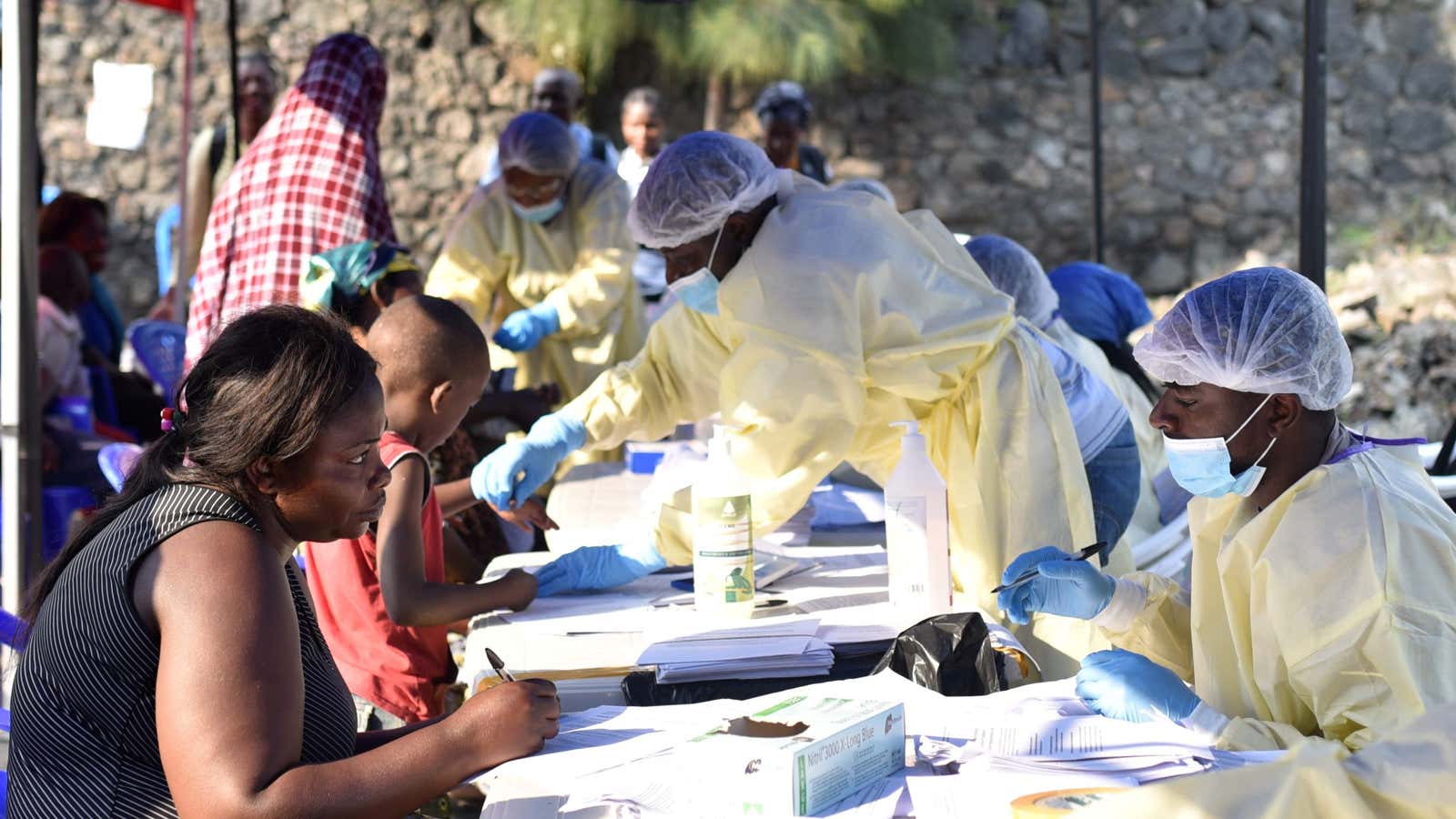The World Health Organization has officially declared the current outbreak of Ebola a “Public Health Emergency of International Concern” (PHEIC) days after the disease spread to Goma, a heavily populated city in eastern Democratic Republic of Congo near the border with Rwanda.
The decision comes following several rounds of dismissal by WHO officials, including the director-general, Dr. Tedros Adhanom Ghebreyesus, to label the disease a global emergency, a technical definition which would open up international assistance to regions affected by the spread of Ebola. The health organization has the power to declare a public health emergency if it believes an outbreak can pose a regional or even global risk.
WHO officials have previously expressed reservations about an official declaration, arguing the move could further hamstring efforts to get supplies to affected regions, and become a burden to travel and trade in central Africa. But their reluctance to declare PHEIC has seen criticism from legal and public health experts.
The recent outbreak has been the second largest, following the 2014 and 2015 outbreaks in Guinea, Liberia and Sierra Leone which killed nearly 11,000 people. The current official global declaration comes after the WHO Emergency Committee’s fourth meeting on the matter since the outbreak occurred in August 2018. According to reports, the current Ebola outbreak has infected 2,489 people, and caused nearly 1,665 deaths.
In a statement for the declaration, WHO officials said the declaration should not be used by governments as a tool to hinder travel and trade in the affected regions.
“It is important that the world follows these recommendations. It is also crucial that states do not use the PHEIC as an excuse to impose trade or travel restrictions, which would have a negative impact on the response and on the lives and livelihoods of people in the region,” said professor Robert Steffen, chair of the Emergency Committee, in a statement.
Sign up to the Quartz Africa Weekly Brief here for news and analysis on African business, tech and innovation in your inbox
